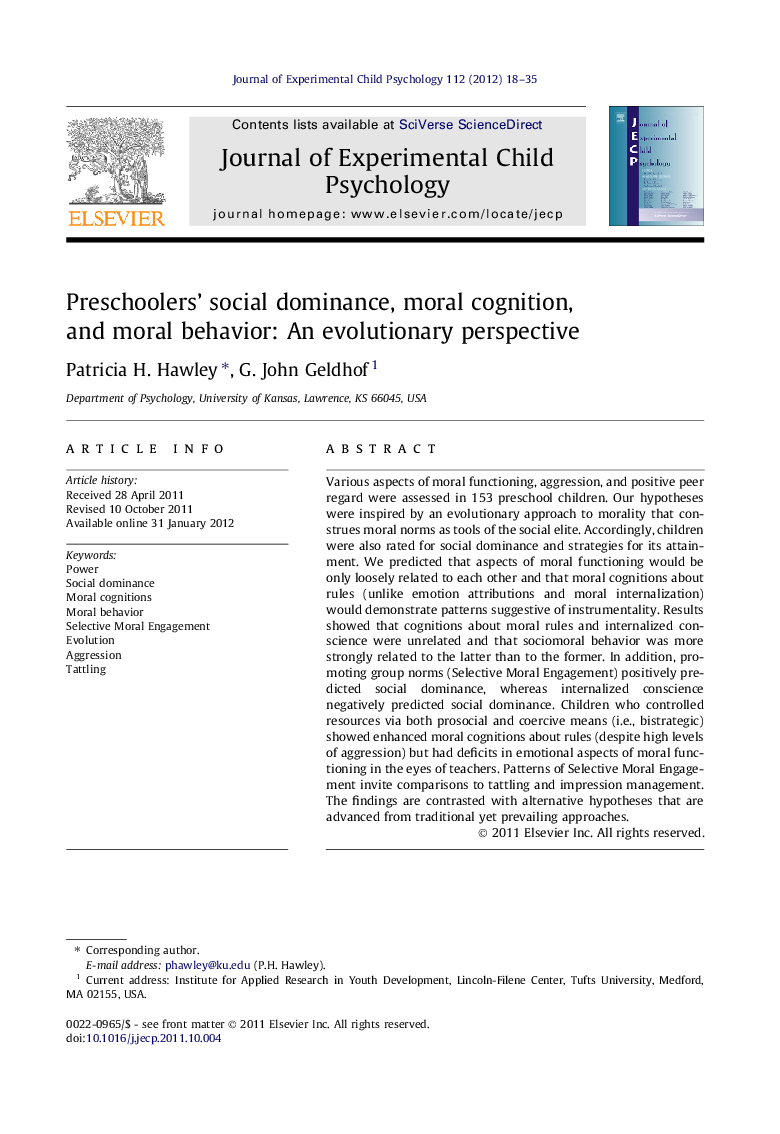| Article ID | Journal | Published Year | Pages | File Type |
|---|---|---|---|---|
| 918181 | Journal of Experimental Child Psychology | 2012 | 18 Pages |
Various aspects of moral functioning, aggression, and positive peer regard were assessed in 153 preschool children. Our hypotheses were inspired by an evolutionary approach to morality that construes moral norms as tools of the social elite. Accordingly, children were also rated for social dominance and strategies for its attainment. We predicted that aspects of moral functioning would be only loosely related to each other and that moral cognitions about rules (unlike emotion attributions and moral internalization) would demonstrate patterns suggestive of instrumentality. Results showed that cognitions about moral rules and internalized conscience were unrelated and that sociomoral behavior was more strongly related to the latter than to the former. In addition, promoting group norms (Selective Moral Engagement) positively predicted social dominance, whereas internalized conscience negatively predicted social dominance. Children who controlled resources via both prosocial and coercive means (i.e., bistrategic) showed enhanced moral cognitions about rules (despite high levels of aggression) but had deficits in emotional aspects of moral functioning in the eyes of teachers. Patterns of Selective Moral Engagement invite comparisons to tattling and impression management. The findings are contrasted with alternative hypotheses that are advanced from traditional yet prevailing approaches.
► Key aspects of morality are associated with social dominance and power. ► Selective Moral Engagement is associated with social dominance status. ► Internalized Conscience negatively predicts dominance. ► Selective Moral Engagement and Socio-moral behavior predict prosocial strategies. ► Selective Moral Engagement predicts coercive strategies.
